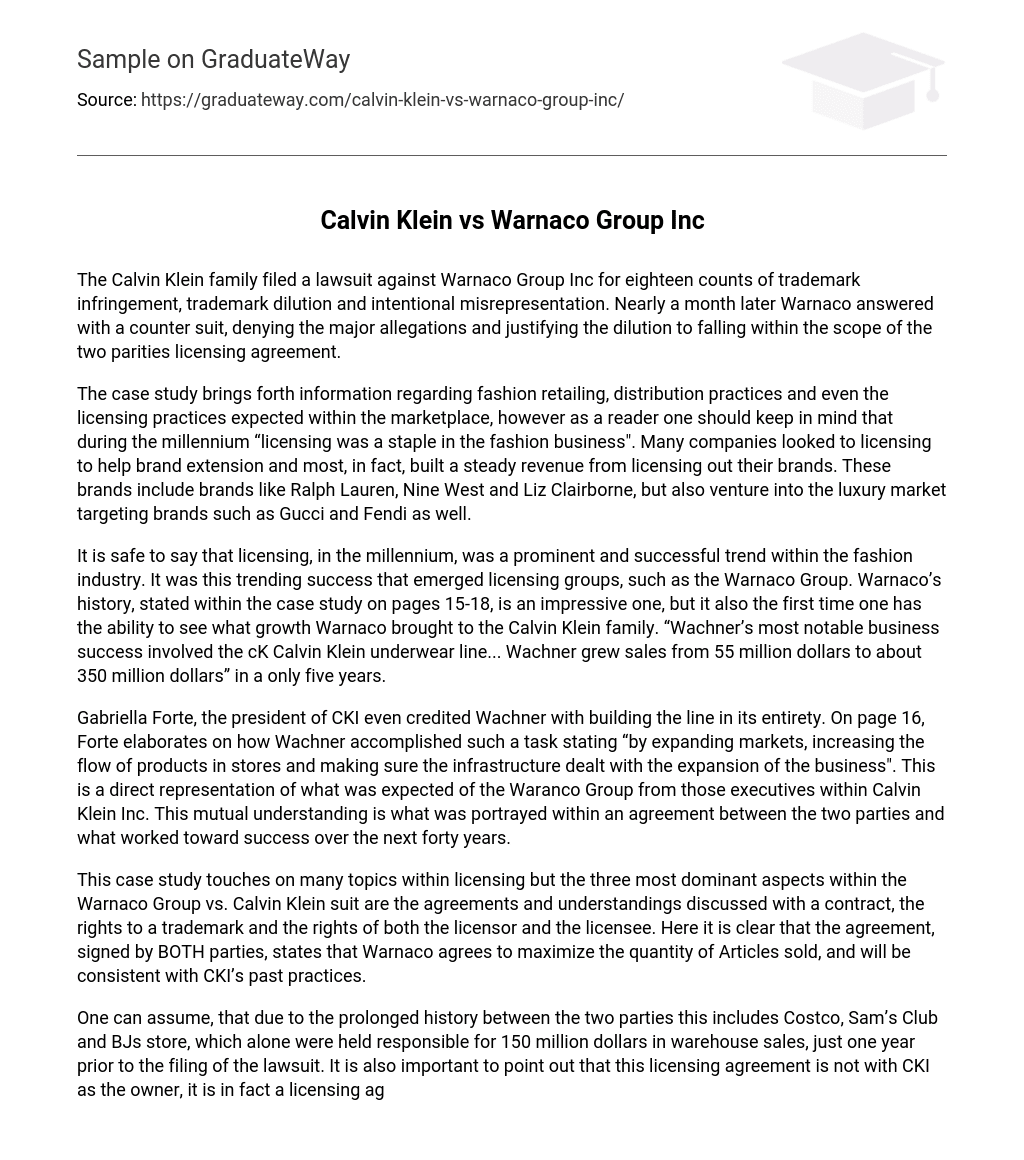The Calvin Klein family has taken legal action against Warnaco Group Inc for multiple offenses including trademark infringement, trademark dilution, and intentional misrepresentation. In response, Warnaco has countersued, refuting the primary accusations and citing the dilution as permissible under their licensing agreement.
The case study discusses fashion retailing, distribution practices, and licensing practices in the marketplace. It is crucial to acknowledge that licensing was prevalent in the fashion industry during the millennium. Various companies, such as Ralph Lauren, Nine West, Liz Clairborne, Gucci, and Fendi, used licensing to expand their brand and generate income.
It can be confidently stated that licensing was a significant and thriving phenomenon in the fashion industry during the millennium. This accomplishment resulted in the establishment of licensing groups like the Warnaco Group. The article on pages 15-18 provides an overview of Warnaco’s remarkable background and showcases the expansion it brought to the Calvin Klein brand. Wachner’s most remarkable achievement in business centered around the cK Calvin Klein underwear collection… Wachner managed to boost sales from 55 million dollars to approximately 350 million dollars within a span of just five years.
In page 16 of the text, it is mentioned that Gabriella Forte, the president of CKI, credited Wachner with completely building the line. Forte explains how Wachner achieved this through expanding markets, increasing product availability in stores, and ensuring the infrastructure could handle business growth. This aligns directly with the expectations of executives at Calvin Klein Inc. This agreement and collaboration between Waranco Group and CKI led to successful outcomes over the course of forty years.
The Warnaco Group vs. Calvin Klein lawsuit centers on various licensing matters. However, the contract, trademark rights, and the rights of both the licensor and licensee are the three key aspects. The agreement between the parties highlights that Warnaco will maximize Article sales while adhering to CKI’s previous practices.
It is estimated that the extensive history between Costco, Sam’s Club, and BJ’s store, along with CKI as the owner, led to $150 million in warehouse sales one year prior to the lawsuit. It is noteworthy that the licensing agreement pertains to the CK Trademark Trust, which is the ultimate owner of all rights, titles, and interests regarding the Licensed Mark.
The licensing agreement stipulates that Warnaco has authority over any action or matter that could impact the Trust. Comprehending licensing in its entirety unveils the possibility for licensors to relinquish control over their assets. However, it is important to bear in mind that this agreement is not driven by emotions but rather by business strategy, contractual obligations, comprehension, and the product involved.
Calvin Klein and Waranco are both involved in a battle, but they approach it differently. Calvin Klein relies on emotions while Waranco relies on facts. The decline of Calvin Klein’s image is not caused by Waranco’s products or selling strategies. In fact, both parties acknowledged these strategies as successful when sales were high. It’s important to note that even if these strategies aren’t proven effective, they were legally agreed upon through a contract. As a reader, I declare the defendant Waranco Group Inc as not guilty.





